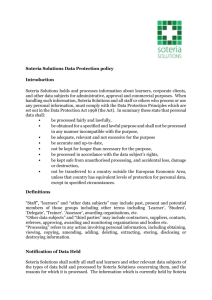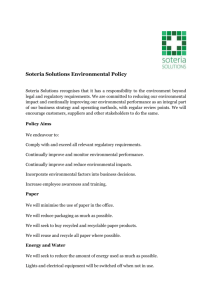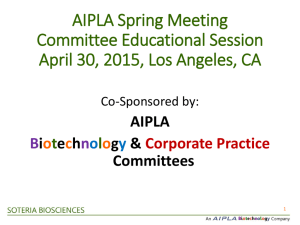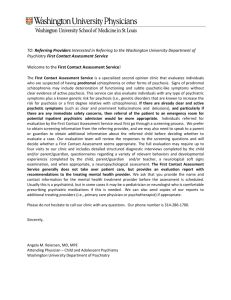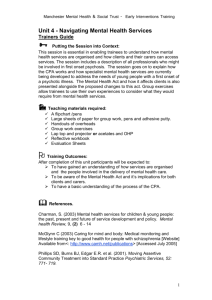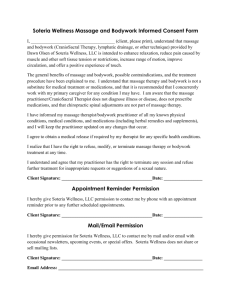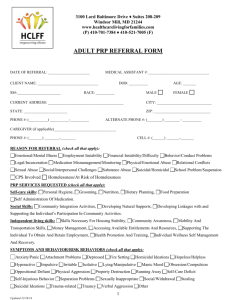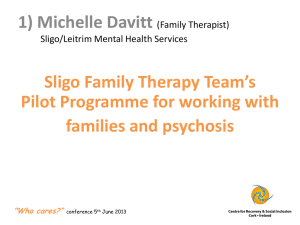soteria 21 slides
advertisement
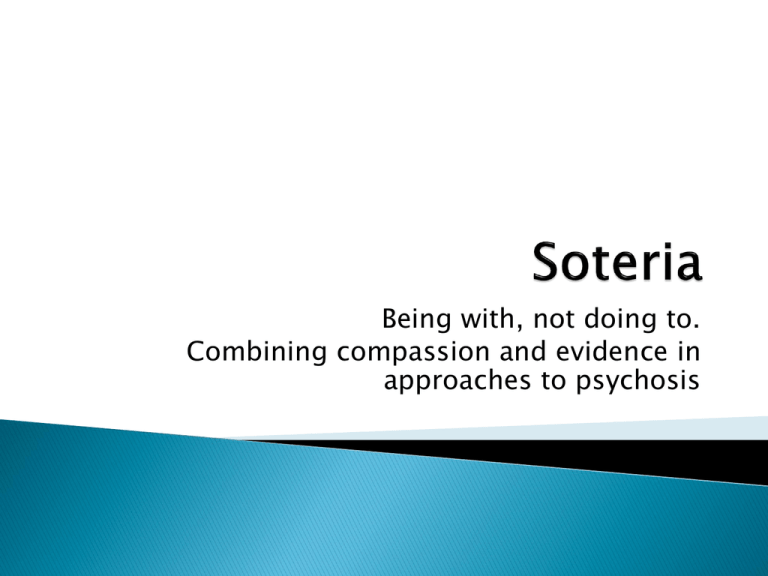
Being with, not doing to. Combining compassion and evidence in approaches to psychosis Research training at Tavistock Clinic Inspired by Kinglsey Hall (RD Laing) and alternative treatments for ‘schizophrenia’ 1970s - Head of Center for Studies of Schizophrenia, National Institute of Mental Health 1970-92 investigator and later Research Director of Soteria Project, San Jose, California Could people newly labelled as 'schizophrenic' and deemed so dysfunctional as to require hospitalization be successfully treated in a small, home-like, non-hospital setting without anti-psychotic drugs? How would their clinical outcomes compare at six weeks, six months and one and two years, to those of a group of similarly selected and studied persons who received the usual in-patient and out-patient follow up care? Outcomes meant whether factors such as hospitalization , medications and psychotic symptoms continued and whether levels of psychological functioning improved or deteriorated Soteria House, San Jose, 1971-1983 research project ran from 1971 to 1983, comparing Soteria with in-patient TAU primarily 1st or 2nd break psychosis ordinary home-like environment typically 6 residents primarily non-medical and untrained staff preserving resident's personal power, social networks, and communal responsibilities finding meaning in the subjective experience of psychosis by "being with" clients (The Vigil) no or minimal use of antipsychotic medication (with any medication taken from a position of choice and without coercion). As much as possible, service users did not receive neuroleptic drugs during the first 6 weeks, in order to give them the best chance of responding to the house "the 24 hour a day application of interpersonal phenomenological interventions by a nonprofessional staff, usually without neuroleptic drug treatment, in the context of a small, homelike, quiet, supportive, protective, and tolerant social environment” interpersonal phenomenology focuses on the development of a nonintrusive, non-controlling but actively empathetic relationship with the person experiencing ‘psychosis’ without having to do anything explicitly therapeutic or controlling. In shorthand, it can be characterised as ‘being with’ Aliens from Venus had selected him for a special mission and would be arriving at a local park to pick him up at 7 o’clock. Test the hypothesis.. The Vigil. Hours, sometimes days being with a resident who was going through psychosis. Sometimes talking, sometimes not. Benignly being with. Two random assignment studies of the Soteria model and its modification for long-term system clients reveal that 85% to 90% of acute and long-term clients deemed in need of acute hospitalization can be returned to the community without use of conventional hospital treatment. Soteria, designed as a drug free treatment environment, was as successful as antipsychotic drug treatment in reducing psychotic symptoms in 6 weeks. THE JOURNAL OF NERVOUS AND MENTAL DISEASE,1999 Mosher, L,M. http://www.ncbi.nlm.nih.gov/pubmed/10086470 A systematic review of research studies on Soteria found that residents at Soteria did at least as well as patients who were treated with standard hospital treatment on measurements of psychotic symptoms and global functioning. Calton, Spandler. Schizophrenia Bulletin 2008 Soteria projects in Sweden, Holland, Finland, Germany, Switzerland and Hungary Soteria Network UK, Bradford and Brighton! Current TAU paradigm is broken ◦ Pharma and the biomedical view has corrupted psychiatry. Prescribed medication is the third biggest killer after cancer and heart disease. (‘Deadly Medicines and Organized Crime’ Peter Gotzsche 2013) ◦ Psychiatric disability rates and prescribing habits have risen in parallel with prescribing habits over the past 20 years, showing that medicines are at best ineffective (Anatomy of an Epidemic, Robert Whitaker, 2010) ◦ Long term studies are now revealing the disabling and life-threatening harms of long term use of psychiatric medication, and the positive outcomes associated with avoiding them How would Soteria residents be faring after 5, 10, 15 and 20 years with a minimal or no medication regime? The Harrow study shows us: Latest 20 year results confirm the pattern. Harrow, Jobe. Does treatment of schizophrenia with antipsychotic medications eliminate or reduce psychosis? A 20-year multi-follow-up study. University of Illinois, 2014 Cheaper and more effective than TAU Service users like it and are not battling with a service they feel does not understand their experiences Mounting evidence from other non-Soteria approaches that psychological and relationship-based services, eg Open Dialogue, are more effective than diseasebased TAU Soteria. Through Madness to Deliverance. by Loren R. Mosher & Voyce Hendrix Hendrix? Any relation? Yes! Set up a Soteria House eventually!!! Raise awareness via SIP events, of alternative perspectives to mainstream approaches, emerging from current research. Set up a group focusing on managing medication Set up a Soteria Café Campaign for a choice of treatment and guidelines for guided reduction of psychiatric medication. BPS Division of Clinical Psychology – Understanding Psychosis and Schizophrenia Mad in America Website www.madinamerica.com Council for Evidence Based Psychiatry website www.cepuk.org Madness Explained: Psychosis and Human Nature by Richard Bentall Look out for the Maudsley Debates Next one 11th May 2016 This house believes that Nice Guidelines ‘CG 178 Psychosis and Schizophrenia in Adults is unbiased and evidence based’. Last year and now online ‘This house believes that the use of long term use of psychiatric medication is doing more harm than good.’ 9th June 2016 Alchemy project. Sept 2016 Soteria Bradford present their work at the Soteria house they have set up! Nov 2016 Suman Fernando – Psychiatrist presenting cultural perspectives in mental health. Questions for Soteria Brighton Members which include carers, individuals with lived experience and a variety of mental health professionals…………..
